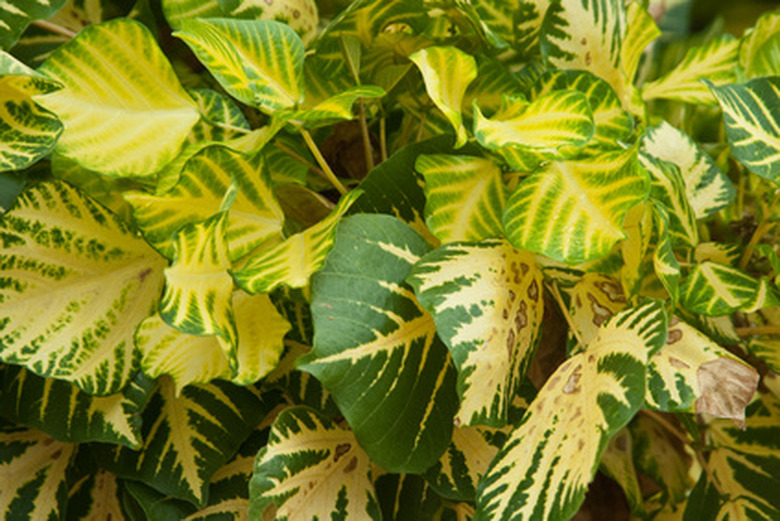Why Is Photosynthesis So Important To Plants?
It is simple to explain why photosynthesis is important for building the structure of plant cells. Plants don't eat food; they have to create it for themselves.
They do this through a process known as photosynthesis. Photosynthesis uses water, carbon dioxide from the air and energy from the sun or another light source to create glucose or sugar. This glucose provides the energy the plant needs in order to survive.
TL;DR (Too Long; Didn't Read)
Photosynthesis is the method by which plants create food. Without this process, they would not survive.
Photosynthesis Happens in Two Steps
Photosynthesis
Happens in Two Steps
Plants take in carbon dioxide through tiny holes in the surface of their leaves, flowers, branches, roots or stems. Water is a necessary component for photosynthesis, and plants have the ability to adapt to their environment. While most plants use roots to collect water, those living in arid conditions have special structures (such as leaves shaped to catch and store rain) that allow them to collect what water is available and to store it for drier times.
There are two phases of photosynthesis.
The first is a _light-dependent reaction_ in which sunlight is converted to other forms of energy. In the second step, the Calvin cycle, which is a _light-independent reaction_, carbon dioxide is pulled from the air and combined with the energy produced during the light-dependent reaction to create glucose (from the Greek gleukos, meaning "sweet wine").
This glucose is then eventually broken down by glycolysis, the citric acid cycle and, finally, through the electron transport chain in mitochondria to create energy that the plant can then use for growth or repair.
Oxygen is also produced during photosynthesis and is released through the same tiny holes through which the plant received the carbon dioxide.
If you were to write a formula for photosynthesis, it would look like this:
**6CO2 + 6H2O + light energy → C6H12O6 (sugar) + 6O2**
Photosynthesis involves a transfer of energy from the Sun to a plant. Each sugar molecule created can either be used by the plant right away or stored for later.
Photosynthesis Is Important to Living Organisms
Photosynthesis
Is Important to Living Organisms
In fact, even many primary producers (organisms that form the base of the food web) such as:
- seaweeds
- grasses
- algae
- phytoplankton
- use photosynthesis
(Note that algae are not plant or animal, but rather their own diverse group of organisms called protists.) Since these organisms are very small – sometimes microscopic – it is necessary for them to reproduce rapidly in order to sustain higher orders of life.
Cite This Article
MLA
Yavorski, Kimberly. "Why Is Photosynthesis So Important To Plants?" sciencing.com, https://www.sciencing.com/photosynthesis-important-plants-6390731/. 5 April 2019.
APA
Yavorski, Kimberly. (2019, April 5). Why Is Photosynthesis So Important To Plants?. sciencing.com. Retrieved from https://www.sciencing.com/photosynthesis-important-plants-6390731/
Chicago
Yavorski, Kimberly. Why Is Photosynthesis So Important To Plants? last modified March 24, 2022. https://www.sciencing.com/photosynthesis-important-plants-6390731/
